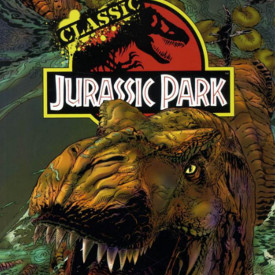This is one of those issues that is so fraught, so convoluted, so personal and so public, that it is doubtful anyone can address it in a manner that doesn’t offend some, certainly doesn’t solve anything and may serve to confuse rather than to illuminate. Nevertheless….
There’s been a movement to remove the statues and memorials to historic figures representative of the Confederacy, which itself is representative of an ideology that celebrates both treason and racism – but sadly, not everyone’s perspective. The Southern Poverty Law Center compiled a list and determined that most of the monuments to CSA leaders and generals were erected well after the war had ended, were not dedicated to people who had died during the war and were not located in cemeteries but were instead placed in town squares, parks and in front of state buildings.
These were not monuments that mourned a loss, these were and are monuments that celebrate an ideology. One that victimized many and represented a desire to continue the victimization.
This is distinctive, because one of the arguments against removal is that it is an erasure of history and akin to Pharaohs who ordered the destruction and removal of a predecessor’s monuments (both as a way to remove their influence on society and to eliminate them from the afterlife), akin to the destruction of the Buddhas of Bamiyan by the Taliban (1400+ year old monumental statues representing a religion offensive to the Taliban), or even the pulling down of statues to Stalin or Hussein in modern times, and it is important to illustrate why these things are not the same.
Removal of Confederate statuary is not an erasure of history. It is a correction.
If a monument’s purpose is to celebrate and inform, to make note of an important contribution to society by an individual or group, to inform us of sacrifices, to permanently mark the landscape with the commemoration of an important event, then the 20th century CSA monuments don’t qualify, because they aren’t true representations of the history being commemorated. At the very least, they don’t tell the whole story. At worst, they serve to advance an untrue, alternate history.
Many have suggested that these monuments be moved to museums, or have corrective plaques attached to them in order to place them in their proper context. Such notices, if they were accurate and honest, would have to state that a particular monument was erected in celebration of the “Lost Cause of the Confederacy”, was erected during the “Jim Crow” (segregationist) era and were meant to remind everyone that the “Lost Cause” still had enough power and influence to get a statue erected (and all of the implications attendant). It should further state that greater society does not agree nor support the intended purpose(s).
Public monuments are, I believe, intended to be positive and commemoratory. The Flag Raising at Iwo Jima doesn’t celebrate the 22,000 Japanese casualties, it commemorates the sacrifice of the 26,000 US marines and soldiers helping to defeat a militaristic ideology. The monument at Hiroshima doesn’t celebrate the first use of an atomic weapon on a civilian population, it commemorates a human tragedy.
And therein lies the rub and the connection to the genre community’s own wrestling with this issue. It’s not merely a question of who do we commemorate with our awards, but how much of the attendant history we are going to incorporate and even more problematic – whose history?
Fairly recently, the World Fantasy Award was changed from a bust depicting H.P. Lovecraft to one depicting an “eldritch” tree in front of a full moon. Petitions by authors and readers, arguing against Lovecraft based on his racist views (and, perhaps more importantly, based on his advancement of those views through his writing), led to the change. Daniel Jose Older said:
“If fantasy as a genre truly wants to embrace all of its fans, and I believe it does, we can’t keep lionising a man who used literature as a weapon against entire races…” (emphasis added)
More recently, discussion has begun concerning the use of John W. Campbell’s name on awards (particularly the “not-a-Hugo” Campbell); attendant to those discussions, the removal of Hugo Gernsback’s name from the Hugo Awards has been floated.
One important suggestion to arise from those discussions is that awards no longer be named for individuals, and I endorse that suggestion. If one wanted to argue against the use of Pluto as a name for an award, the most negative thing one could say was that it was demoted from being a planet. A person though, well, dig down far enough and everyone has feet of clay. They may not have expressed racist or bigoted or anti-Semitic or misogynistic or homophobic views, but no one is perfect. Maybe they didn’t like puppies. Maybe they disssed the genre for some perceived slight; maybe they got married too many times, or seem to have “borrowed” too much from others, maybe they believed UFOs are real, or dabbled in pseudo-scientific beliefs, had an argument with the wrong person….
We can avoid all of that by not using people’s names for awards. There’s plenty of opportunities to honor – by name – those who are deserving – induction into the hall of fame, appearances as guests of honor, being named as a Grandmaster, being given actual awards for their work, inclusion in In Memoriam lists.
But we are still vexed with the problem of evaluating our currently named awards. It’s one thing for the community (or at least a large plurality of the community) to argue that the award is so-named because of the individual’s demonstrable contributions to the field, to say that they are focusing on those contributions and not on the individual, but in the end, the award is presented to an individual, and that individual’s views may not coincide with the thinking of the community.
Nnedi Okorafor is one such individual. She won the World Fantasy Award in 2011 (for Who Fears Death) and had this to say:
“A statuette of this racist man’s head is in my home. A statuette of this racist man’s head is one of my greatest honours as a writer,”
Collectively, the community was extending an honor. To the individual, it is a problematic honor. The intent is understood, the trappings diminish.
This doesn’t only relate to larger issues like racism or misogyny; if you had personal dealings with A. Bertram Chandler and thought unkindly of him, receiving a Chandler award would be conflicting for you.
The questions we need to ask are these:
Is our intent with the naming of an award to ONLY consider their “contributions to the field”? How far back do we dig to determine someone’s suitability? What will we choose to see as unacceptable? Can a person’s deeds be separated from their thoughts? Should they be? Are we engaging in revisionism or in uncovering more of the truth? Do we give greater credence to our contemporary views or to those prevalent in the past?
My answers to those questions will not be the same as everyone else’s. To answer them in light of the current discussion regarding Campbell and Gernsback:
I think we should be looking more at an individual’s contribution to the field than their personal life – unless the individual allowed the personal to influence their contributions. In Campbell’s case, it is obvious that he did. Gernsback, not so much.
How far back? I don’t think childhood indiscretions should be considered – we all do and say stupid, intemperate things when young. Such should only be considered if it forms a pattern that extends into adult/professional life. I can’t say how this applies to Campbell or Gernsback, I don’t know enough about their childhoods.
What we choose to accept or reject ought to be determined with the widest possible degree of sensitivity to everyone in our community; we should err on the side of minority concerns because we have determined that, as a community, we want to be as inclusive as possible. (Makes rock bottom sense: the fewer people you offend, the larger the audience is.) If POCs and others object to Campbell’s racism, and there is evidence to support those claims (and there is),then we should accept the fact that the named award is offensive to members of our community and we should change it.
Many in the field revere Campbell; many of those same people came to be thankful for what he had done for them professionally, but at the same time distanced themselves from him because of his views. This is, I think, something to give due consideration to.
What do we choose to see as unacceptable? Those very things that are antithetical to our purpose of inclusion; racism, bigotry, anti-Semitism, misogyny, homophobia. But we must always consider the degree and the influence attendant with such beliefs. I don’t think a single intemperate remark, an attempt at humor that goes bad, an expressed misunderstanding, over the course of a lifetime, is sufficient cause. Patterns of behavior over that lifetime, certainly.
Revisionism or truth? For that, we go to the record. Did Campbell’s beliefs negatively impact the field? Yes, they did. They made readers uncomfortable, they made authors uncomfortable, there is even evidence to suggest that stories and themes and sales to his magazine were influenced. And lets be clear – we’re not talking about re-writing the history books, we’re talking about changing the name of an award. Campbell’s wikipedia, SF Encyclopedia entries will still be maintained; his contributions and legacy remain part of our history. One that is now better informed.
So far as Hugo is concerned, well, I have to admit to some bias here, but I think his sins are minor enough that we can note them and still be comfortable with his name on the awards. So far as we know now, his biggest sin was to be slipshod in his payments to authors. This is indeed a sin in the genre fields, but there may have been mitigating factors (for one, a miscommunication with HG Wells over payment; there is a strong possibility one was talking dollars and the other pounds). However, if someone uncovers evidence that Mr. Gernsback propounded unacceptable views while also allowing them to affect his work in the field, the same criteria being applied to Campbell ought to be applied to him.
So lets name our awards for things, not people (plenty of celestial objects available – Comets, Asteroids, Galaxies, Universes, a good portion of the planets and moons in our solar system not to mention sub-genre names,,,) and as for those named awards remaining, lets consider and use our core principals to inform our decisions.










